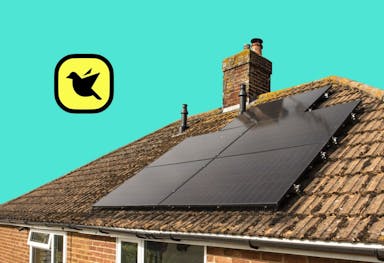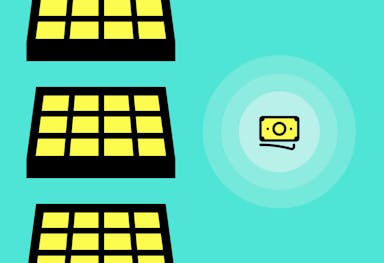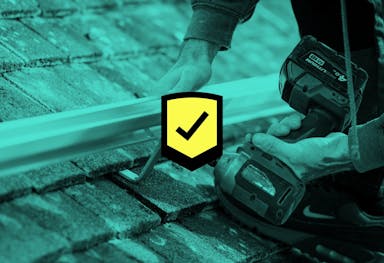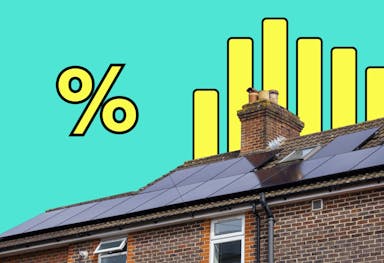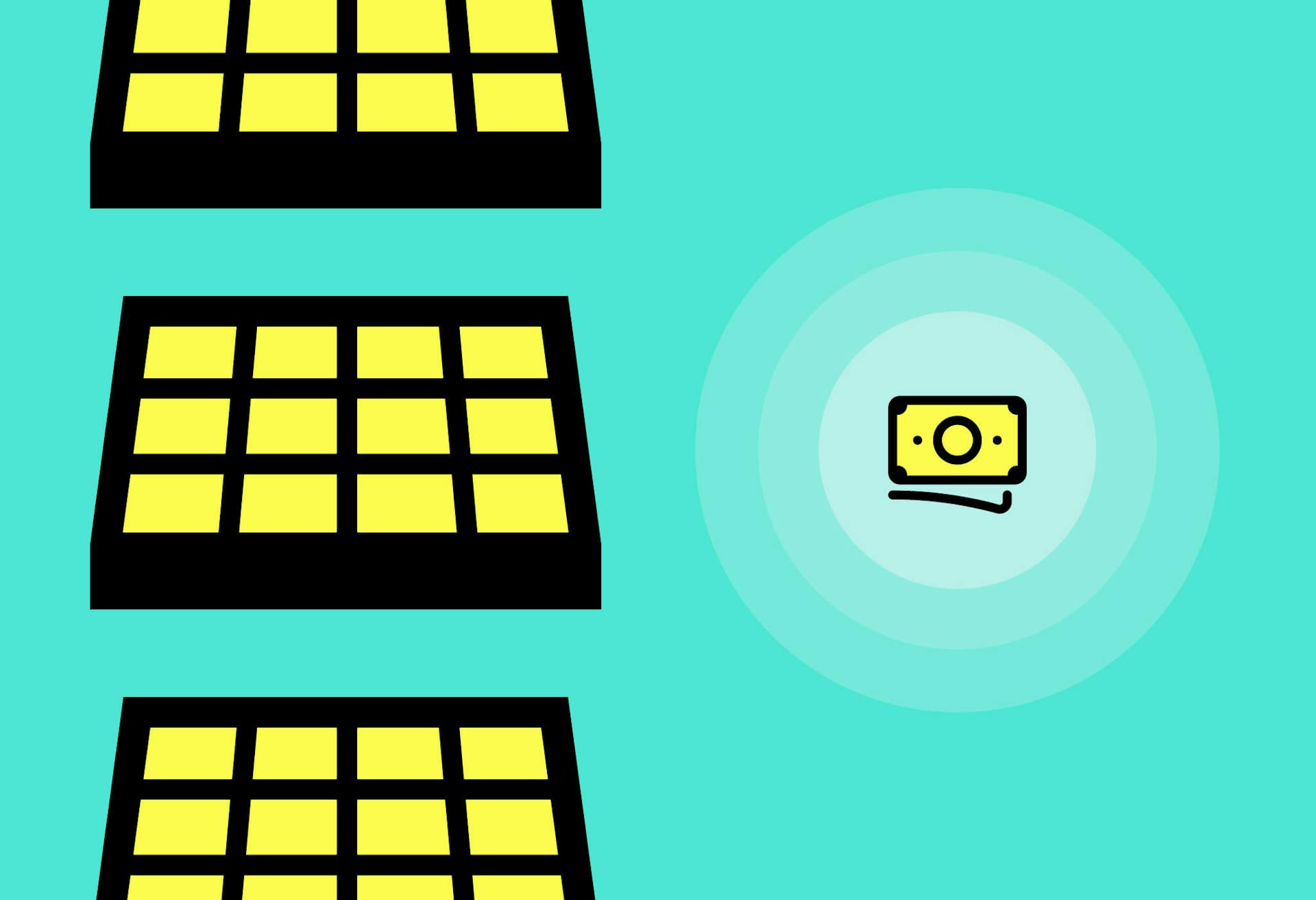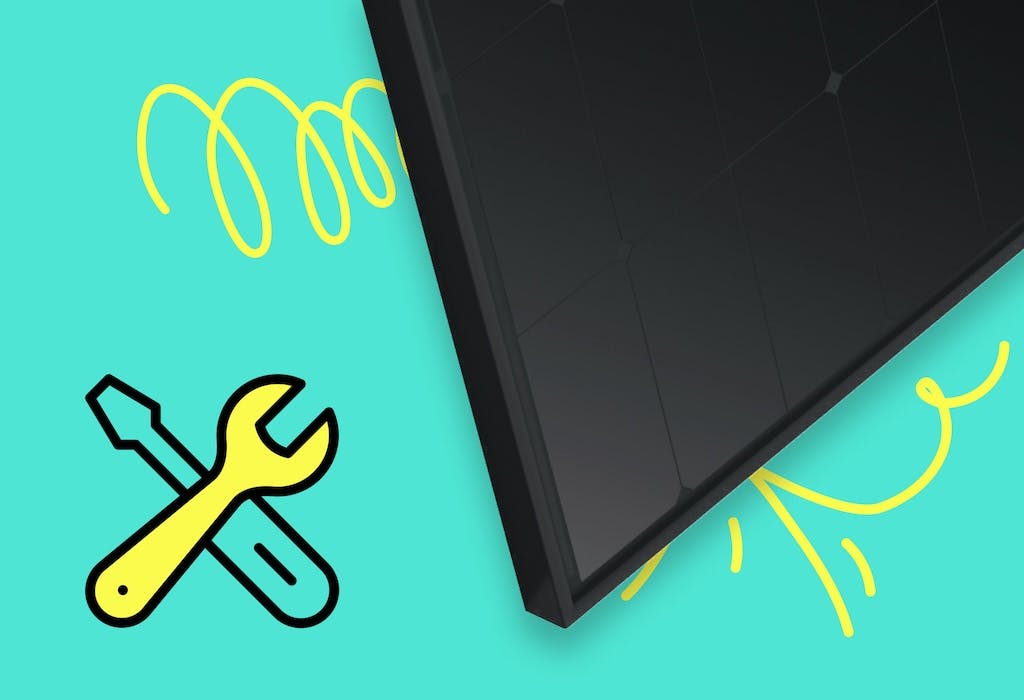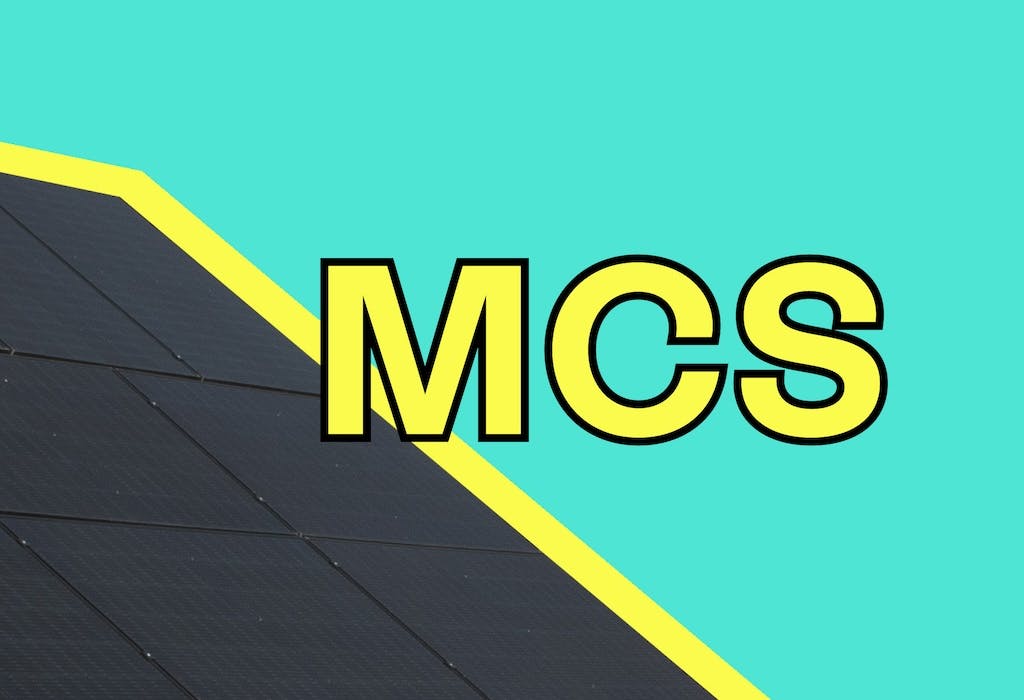- Solar advice hub
- Costs
- Solar panel quotes: 7 questions to ask before installing solar
Solar panel quotes: 7 questions to ask before installing solar
When comparing solar panel quotes, here are the seven most important things to think about.


Why you can trust our content
We know that the solar industry is full of misinformation, but we only use reliable sources, including:
- Our experienced solar experts, installers and system designers
- Our own database of solar & battery system designs
- Authoritative bodies like MCS and the UK government



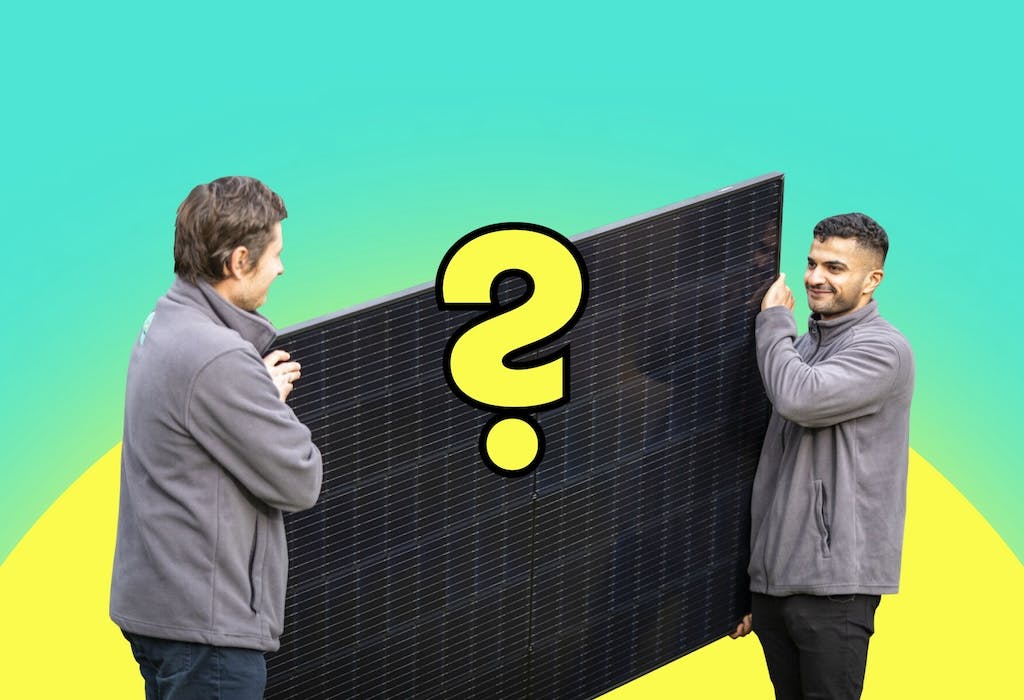
Calculate savings
What kind of home do you live in?
Calculate savings
What kind of home do you live in?
Comparing solar panel quotes: at a glance
Gathering quotes for a new solar panel system can feel like being stranded in a minefield of dodgy installers, dubious estimates, and “special” deals.
The best way to get through it unscathed is to stay focused on the most important factors, without getting sidetracked by suspiciously cheap prices.
In this guide, we’ll run through all the questions you should ask installers, which will help you narrow down your selection to the one that’s right for you.
If you’re wondering how much a solar & battery system could save you, just answer a few questions below and we'll provide you with an estimate.
Find out how much you can save
What kind of home do you live in?
What questions should you ask a solar installer?
It’s important to compare quotes from lots of different solar installers – but the prices they offer are just one of the factors you should consider.
After all, a cheap upfront cost can be a desperate ploy to hide any number of red flags, including substandard gear, rushed installations, poor customer ratings, and zero maintenance support.
It’s best to look for an installer who’s skilled, accredited, trustworthy, stocked with top-tier products, and ready to provide all the aftercare your system needs.
Their answers to the following questions should reveal whether or not they meet these criteria.
1. Do you provide monitoring and maintenance?
It’s important that your solar installer takes care of your system once it’s on your roof, to ensure you make the most of your investment.
This should involve continual monitoring, so you know that if your system’s output drops for whatever reason, it’ll be picked up by an expert.
And your installer should also provide maintenance cover that lasts as long as possible.
Some technical experts in the industry estimate that a solar & battery system in the UK will need three maintenance call-outs across a 20-year period – one for the panels, one for the battery, and one for the inverter.
This increases your overall costs, especially when it comes time to replace your battery and inverter. It also requires you to find a competent, reasonably priced local engineer every time, which can be a time-consuming hassle.
The standard product and workmanship warranties you’ll receive with your system are usually extremely limited, and claiming on them can take an extensive amount of time and effort. For more information, read our guide to solar panel warranties.
Every Sunsave Plus system is protected by the Sunsave Guarantee, which includes 24/7 monitoring and maintenance.
We’ll keep an eye on your system, flag any unusual drops in output, troubleshoot the problem and – if necessary – send an engineer over to fix it. We’ll also manage any warranty claims on your behalf.
When we enter into a 20-year contract with you, we commit to ensuring you get the best out of your system for at least the duration. It’s in our interest to keep you happy, and it’s the right thing to do.
2. Do you offer replacement parts?
One of the major benefits of going solar is that your panels should last 30-40 years, which is part of what makes them an excellent investment.
However, the other crucial parts of your installation – such as your battery and inverter – have much shorter lifespans.
Batteries usually last 10-12 years, declining over time like a phone battery, and by year 12, you’ll no longer be getting the best out of your system. At this point, you should look at replacing it.
Battery manufacturers generally reflect this lifespan in their warranties, meaning you’ll probably have to buy a new one at full price, which can add significantly to your total costs.
Most solar panel inverters also tend to need replacing once it’s been 10-12 years, as the chances of it failing increase sharply after the 10-year mark – as you can see below.
Half of inverters fail by year 14, according to a study in 2019 by risk management experts Det Norske Veritas (DNV).
Fortunately, the Sunsave Guarantee includes free replacement parts, so you won’t have to worry about paying through the nose to replace your battery and inverter further down the line.

3. Is the price fixed?
This is a particularly relevant question when it comes to solar panel loans and subscriptions.
You may be tempted by an installer who shows you an attractively low starting payment – but make sure you ask about annual rate changes.
Question them on how much your payments will increase by each year, what kind of scope they have for raising them, and the specific amount you’ll pay in year three, year five, year seven, and so on.
After all, there’s no point in switching to solar to protect against rising energy bills if the resulting loan payments end up making your overall costs higher.
With Sunsave Plus, you’ll pay a fixed monthly fee for the full subscription term, with no sneaky price rises. What you pay in your first month will be exactly the same as what you pay in your last month.
If you’re wondering how much you could save with Sunsave Plus, just answer a few questions below and we'll provide you with an estimate.
Find out how much you can save
What kind of home do you live in?
4. How can I trust your estimates?
Going solar can help you combat energy price rises by substantially reducing the amount of electricity you need to import from the grid – as long as your installer makes an accurate assessment.
When you get a quote, the installer will estimate how much electricity your system would produce per year, using data including your location’s solar irradiance, your roof’s angle and direction, and how powerful the solar panels are.
If their estimates are wrong, you could get a subpar solar panel system that doesn’t save you enough money to make it worth the investment.
To ensure you only receive realistic predictions, look for an installer whose estimates are validated by the Energy Performance Validation Scheme (EPVS).
This independent industry body checks that installers’ calculations and estimates are substantiated with evidence, allowing customers to make informed decisions.
Sunsave has an EPVS Gold Standard Membership. This means you can trust that our estimates are based on valid data, our calculations are sound, and our conclusions are realistic.
5. Are you using top-quality kit?
Despite our dark winters and frequently cloudy weather, solar panels are now advanced enough to be a great investment in the UK – but only if you get top-tier equipment.
Make sure you choose an installer that uses solar panels with high power and efficiency ratings, so you can make the most of your roof space by generating as much electricity as possible.
If your solar panels aren’t at least 20% efficient, find a different installer, because the vast majority of modern monocrystalline solar panels are 20-25% efficient, and you shouldn’t be missing out.
When you get a quote that mentions specific solar and battery modules, check online to see what other people are saying about them, and read reviews from trustworthy sources.
There are a few types of solar batteries, but any installer worth their salt will offer a lithium-ion model.
Flow batteries are good, but their weight and cost makes them unsuitable for household usage, while lead-acid ones are outdated and nickel-cadmium batteries are banned in the UK.
6. Do you provide bird protection?
It’s always worth considering bird protection for your solar panels, so any installer that hasn’t offered it should be viewed with suspicion.
Birds, and particularly pigeons, often nest in the warm space under solar panels, which they can then damage with their excretions and by pecking at the wiring.
They can also crack tiles by dropping stones from a height, then peck until they turn it into a hole that’ll allow them entry into your warm roof space.
And their nesting activities often attract other animals, like rodents and insects, that can cause further problems for your system.
Bird protection usually adds a few hundred pounds to your solar panel costs, but it’s well worth it to avoid damage further down the line, especially if you’re not getting professional monitoring with your panels.
Left unchecked, damage from birds can reduce your system’s output, cut into your electricity bill savings, and cost a lot to fix.
For more information, read our guide to solar panel bird proofing.
7. Do you have the best standards?
It’s crucial that the installer you choose has proven their skill and dedication to the relevant authorities.
Thankfully, installer standards have risen sharply in recent years, and thousands of solar companies have received a stamp of approval from Flexi-Orb and/or the Microgeneration Certification Scheme (MCS).
It’s a minimum requirement now, particularly since you can’t qualify for a solar export tariff without it.
All the best solar installers – including Sunsave – are also accredited by RECC, registered with NAPIT, and approved by TrustMark, though this still includes hundreds of firms all over the country.
That’s why the most important factor is an installer’s reviews. Check what real customers are saying, and you’ll find out if you can trust a company or not.
Next steps
The switch to solar is an exciting journey for any household, but it’s vital this transition isn’t hampered by a low-quality installation and non-existent aftercare.
Don't be afraid to ask for references, certifications, and details about equipment and warranties. Your solar installer should be knowledgeable, transparent, and willing to work with you to find the best solution for your home.
If you’re wondering how much a solar & battery system could save you, just answer a few questions below and we'll provide you with an estimate.
Find out how much you can save
What kind of home do you live in?
Solar panel quotes: FAQs
Related articles

Written byJosh Jackman
Josh has written about the rapid rise of home solar for the past six years. His data-driven work has been featured in United Nations and World Health Organisation documents, as well as publications including The Eco Experts, Financial Times, The Independent, The Telegraph, The Times, and The Sun. Josh has also been interviewed as a renewables expert on BBC One’s Rip-Off Britain, ITV1’s Tonight show, and BBC Radio 4 and 5.
